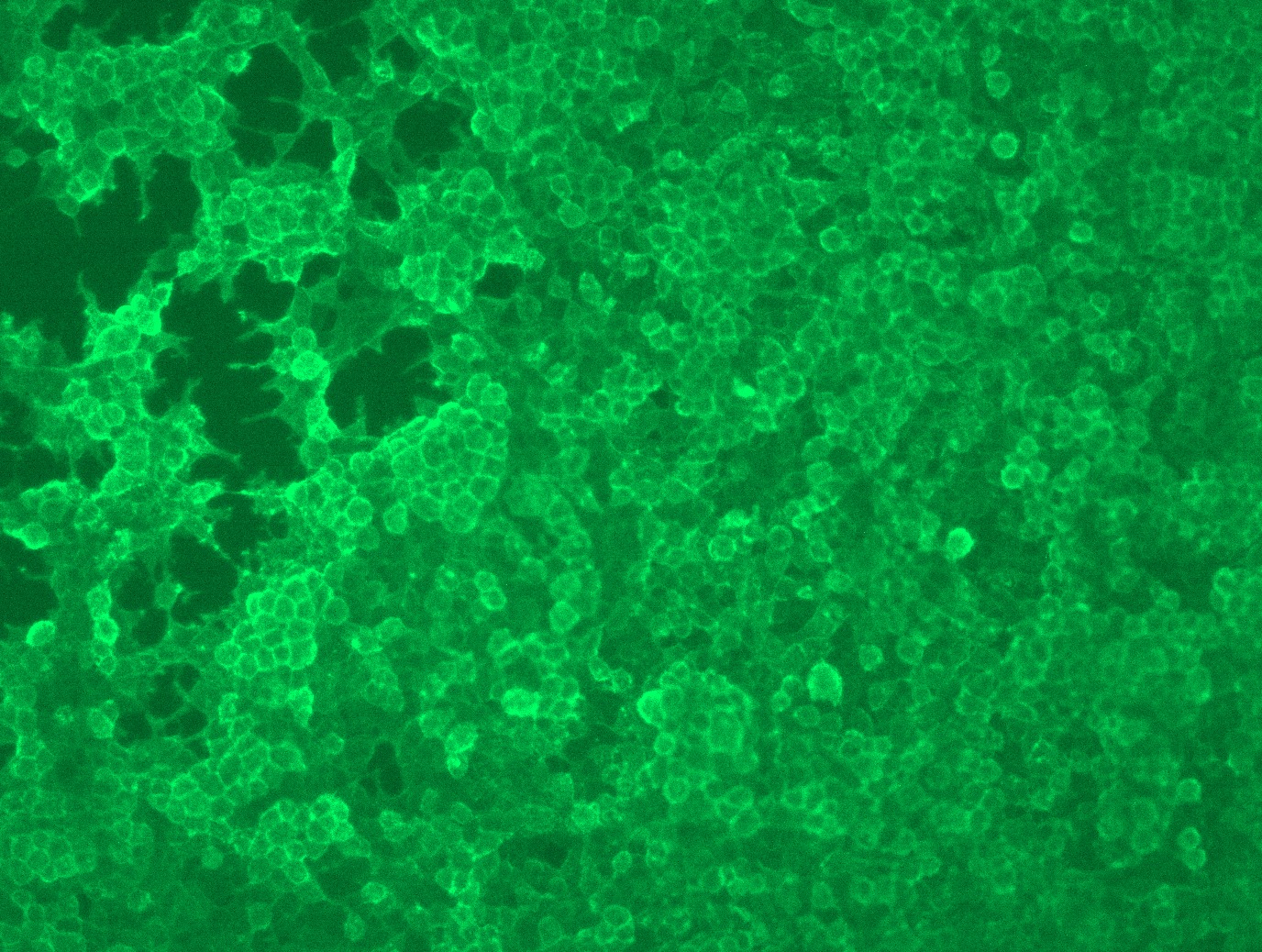PD1 (PDCD1) (NM_005018) Human Tagged ORF Clone Lentiviral Particle
CAT#: RC210364L3V
- LentiORF®
-

Lenti ORF particles, PDCD1 (Myc-DDK tagged) - Human programmed cell death 1 (PDCD1), 200ul, >10^7 TU/mL
Lentiviral Particles: DDK mGFP mGFP w/ Puro
Buy this product and get 50% off on the Lenti RapidTiter kit. Use Code: Rapid50
USD 365.00
Specifications
| Product Data | |
| Type | Human Tagged ORF Clone Lentiviral Particle |
| Tag | Myc-DDK |
| Symbol | PD1 |
| Synonyms | CD279; hPD-1; hPD-l; hSLE1; PD-1; PD1; SLEB2 |
| Mammalian Cell Selection | Puromycin |
| Vector | pLenti-C-Myc-DDK-P2A-Puro |
| ACCN | NM_005018 |
| ORF Size | 864 bp |
| Sequence Data |
The ORF insert of this clone is exactly the same as(RC210364).
|
| OTI Disclaimer | The molecular sequence of this clone aligns with the gene accession number as a point of reference only. However, individual transcript sequences of the same gene can differ through naturally occurring variations (e.g. polymorphisms), each with its own valid existence. This clone is substantially in agreement with the reference, but a complete review of all prevailing variants is recommended prior to use. More info |
| OTI Annotation | This clone was engineered to express the complete ORF with an expression tag. Expression varies depending on the nature of the gene. |
| Reference Data | |
| RefSeq | NM_005018.1 |
| RefSeq Size | 2115 bp |
| RefSeq ORF | 867 bp |
| Locus ID | 5133 |
| UniProt ID | Q15116 |
| Cytogenetics | 2q37.3 |
| Domains | ig, IGv, IG |
| Protein Families | Druggable Genome, Transmembrane |
| Protein Pathways | Cell adhesion molecules (CAMs), T cell receptor signaling pathway |
| MW | 31.6 kDa |
| Gene Summary | Programmed cell death protein 1 (PDCD1) is an immune-inhibitory receptor expressed in activated T cells; it is involved in the regulation of T-cell functions, including those of effector CD8+ T cells. In addition, this protein can also promote the differentiation of CD4+ T cells into T regulatory cells. PDCD1 is expressed in many types of tumors including melanomas, and has demonstrated to play a role in anti-tumor immunity. Moreover, this protein has been shown to be involved in safeguarding against autoimmunity, however, it can also contribute to the inhibition of effective anti-tumor and anti-microbial immunity. [provided by RefSeq, Aug 2020] |
Documents
| Product Manuals |
| FAQs |
| SDS |
Resources
{0} Product Review(s)
Be the first one to submit a review






























































































































































































































































 Germany
Germany
 Japan
Japan
 United Kingdom
United Kingdom
 China
China



